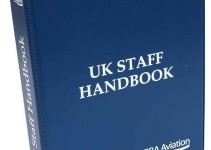Beven Hartfield has worked at Chippewa River Industries since February and said she revels in her employment at the Chippewa Falls site.
“It’s active, and there’s a ton of help, and that is the thing that I like about it,” Hartfield said. “They show us work abilities, relationship building abilities (and) how to act, so it is ideal.”
For a considerable length of time the eventual fate of such offices as CRI, REACH and the L.e. Phillips Career Development Center, which give business and preparing administrations to individuals with incapacities, has been open to question. A few defenders of those organizations stress over how new government regulations may influence financing.
A Centers for Medicare & Medicaid Services, or CMS, decision with respect to those organizations, known as shielded workshops, accumulated consideration in January when CMS issued guidelines on the most proficient method to agree to new financing principles. The government organization gave states five years to create move plans for agreeability.

Neighborhood offices right now are reacting to the state Department of Health Services’ Family Care Medicaid Waiver arrangement discharged in late July. That arrange is deficient, CRI executive Dave Lemanski said.
“They don’t deliver how they’re going to manage office based prevocational administrations,” Lemanski said, noting the waiver states various times it needs more data from CMS.
DHS Secretary Kitty Rhoades said nothing in this waiver accommodation progressions anything in regards to operations of shielded workshops, yet when CMS issues more data, they will need to agree.
Without that data included in the arrangement, Lemanski and others stress offices, for example, CRI and REACH could stop to exist.
“We’re attempting to not represent it as most dire outcome imaginable outlines, however at the same moment we must be sensible that in the event that its not in the arrangement its not going to exist,” Lemanski said.
DHS is tolerating open remark from included gatherings on the move arrange through Sept. 2 preceding it is submitted to CMS in October.
It is uncalled for to request remark without all the pieces, Lemanski said, which is the reason a lot of people are pushing for CMS to give more data so DHS can issue a reexamined arrange and open it up for an alternate open remark period.
“Additionally at the same moment to keep on presering the full show of administrations, which incorporates group based administrations and office based administrations,” Lemanski said.
A few customers, huge numbers of whom likewise have worked in a group setting, said they incline toward shielded workshops and are worried about what would happen in the event that they close.
“On the off chance that they close this, where are the individuals going to go?” asked Gina Koepke, who has worked at CRI for nine years.
Without her occupation at CRI, Koepke said, “I would most likely simply stay home and do nothing.”
Folks and overseers had comparative concerns. Kathleen Brown, whose 42-year-old girl with Down disorder uses administrations at Indianhead Enterprises in Menomonie, said she doesn’t think her girl would have the capacity to come back to a group based setting.
“My little girl worked in the group in excess of 18 years, yet it was constantly constrained hours. She didn’t generally have peers, it was quick paced, and it became hard and baffling,” she said. “In the long run she went to the workshop later and has peers and has a nature’s domain.”
Diana Wiesner concurred and said her little girl Tonya, who has cerebral paralysis, is amped up for the opportunities the workshops give her.
“When she gets up in the morning she has a reason,” Wiesner said. “We all need that.”
Workshop resistance
Others are not as steady of workshops. Gatherings, for example, the Association of People Supporting Employment First said the state needs to accomplish more to coordinate people with handicaps into the group.
“Wisconsin uses double the measure of open dollars on office built work than in light of group occupation and has impressively a lot of people more suppliers statewide offering and stressing office based job over coordinated job helps,” Andrzej Walz-Chojnacki, open arrangement contact for the Wisconsin APSE part, said. “Issues identified with poor business help quality, holding up, or constrained decision in groups could be fixed specifically once again to this serious irregularity in financing and prioritization by Wisconsin.”
Walz-Chojnacki said the thought that decisions will be taken away by the DHS change is false.
“On the off chance that anything, stretched decisions ought to be accessible to families and people who have been sitting tight for new alternatives in their groups,” he said.
Lemanski said the civil argument shouldn’t be in regards to group based versus office based administrations, noting about 50% of CRI customers work in group based settings.
“What we’re stating is don’t toss the infant out with the shower water,” he said. “Don’t compel an one size fits all approach. Let the full cluster (of administrations) proceed.”
Rhoades said she upholds a “summary of business,” noting people ought to have the decision of where they need to work. She submitted a letter to CMS, however said DHS is restricted since the waiver is expected in October.



